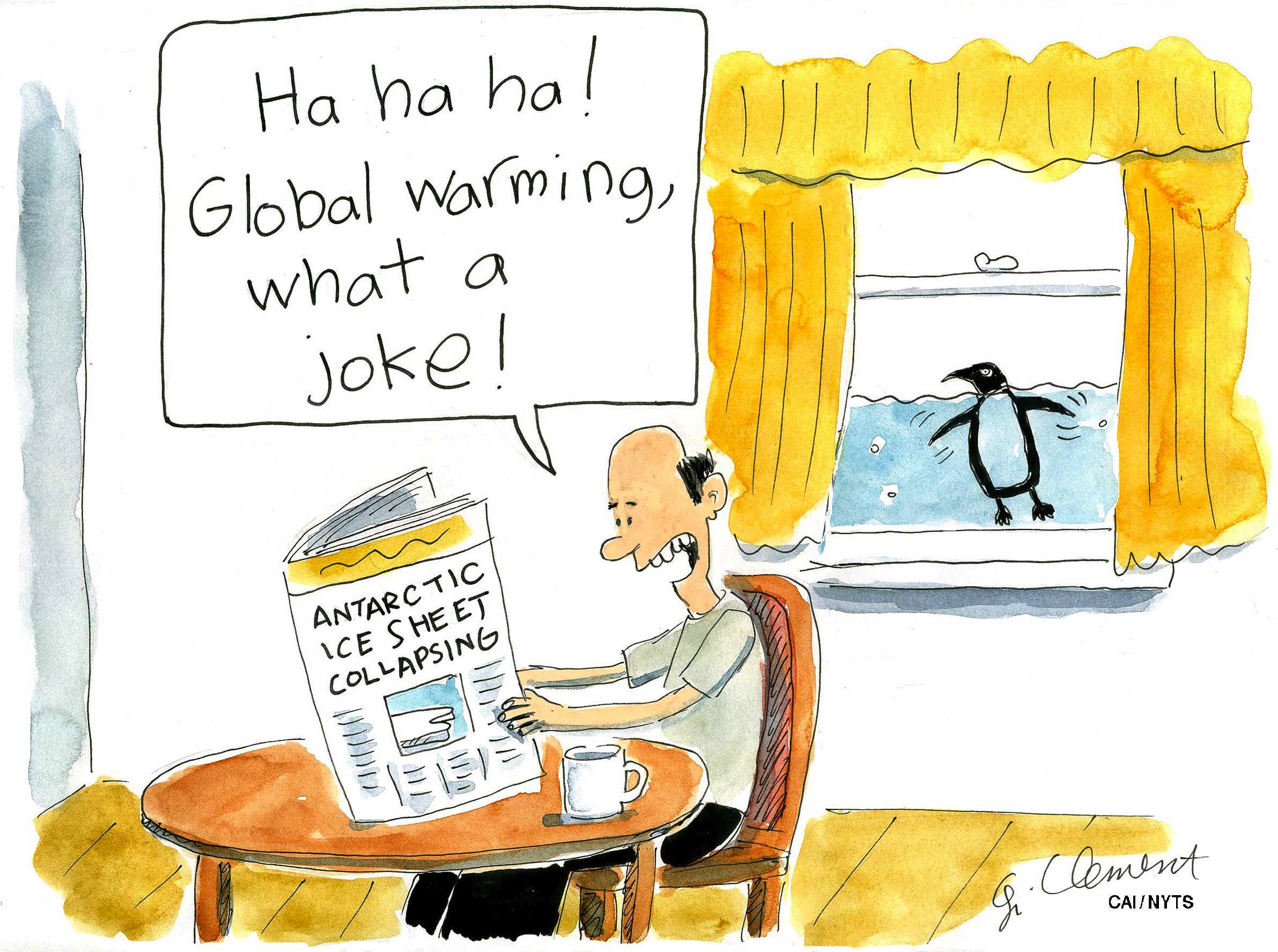The recent announcement that Canada won't match U.S. emission-reduction targets offers a fresh look at Canadians' enduring bipolarity on climate change: They're far more likely than Americans to say the problem is real, yet keep voting for a government that does nothing about it. Therein lies a cautionary tale for the rest of the world.
In a narrow sense, Prime Minister Stephen Harper's statement marks a reversal. He has long used the absence of a U.S. climate policy to justify his government's failure to introduce oil and gas regulations he first promised almost a decade ago, on the logic that the two countries are too economically integrated to pursue different approaches. Now that U.S. President Barack Obama has set an official target — a 26 percent to 28 percent reduction in greenhouse gases by 2025 — Harper is saying the American policy is too aggressive to match.
But the Canadian decision is really the culmination of years of hostility toward the idea of fighting climate change. Harper's government pulled out of the Kyoto protocol in 2011, dismissed environmental groups as foreign pawns and gave its version of the Internal Revenue Service a new mandate and extra funding to target them. It closed climate research programs, laid off scientists and prohibited those who remain from speaking to the news media. And the latest data show that unless something changes, the country won't come close to its 2009 Copenhagen pledge to cut emissions 17 percent by 2020.


















With your current subscription plan you can comment on stories. However, before writing your first comment, please create a display name in the Profile section of your subscriber account page.